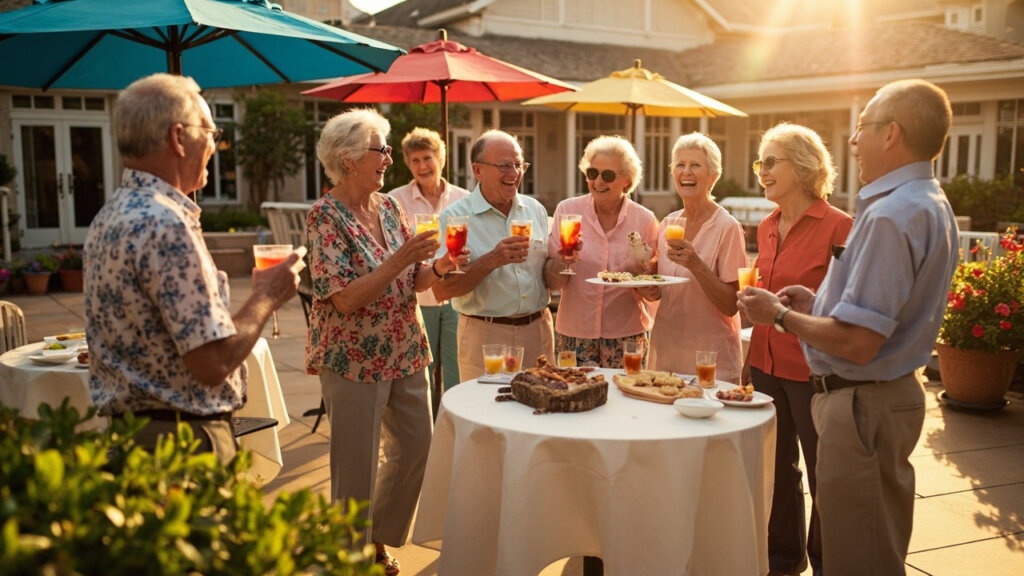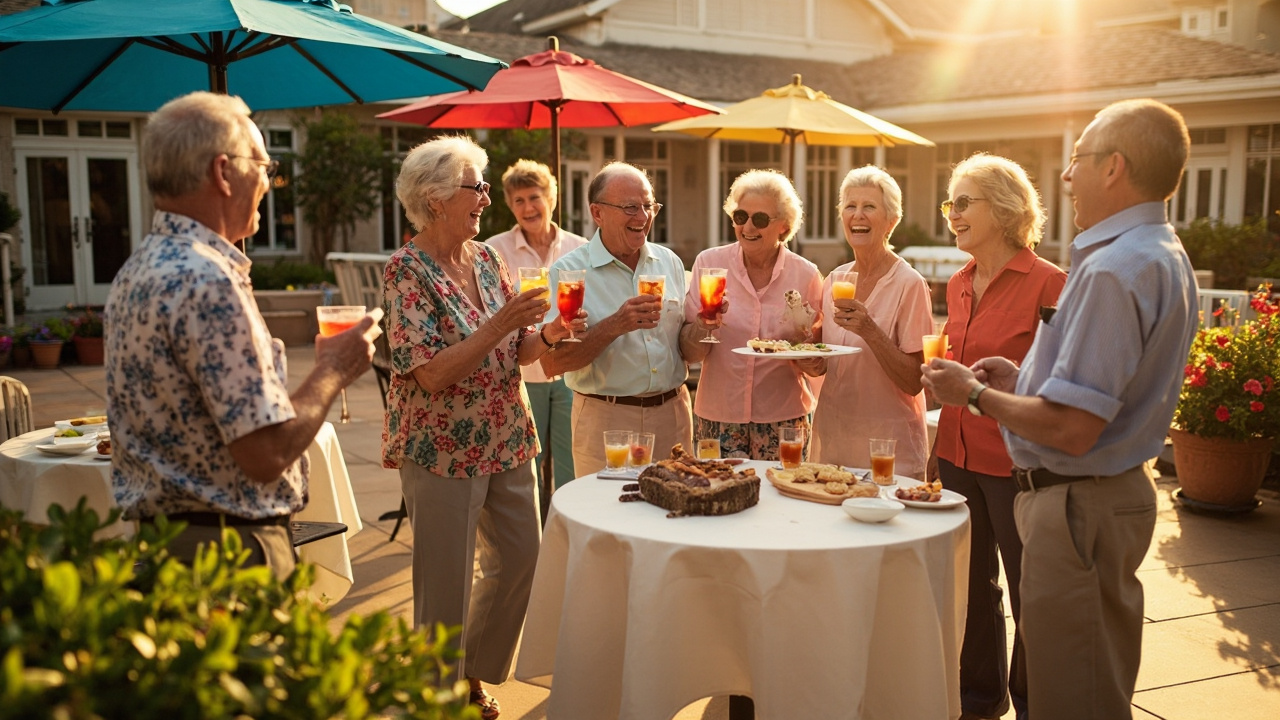If you’re over 50 and thinking about downsizing, simplifying, or starting a new chapter, a 55+ community might sound like a dream come true. And for many, it is.
But beyond the glossy brochures and manicured golf courses, there are things about life in a 55+ community that you don’t always hear upfront.
Before you pack the moving boxes, it’s smart to know the real pros and cons—because moving into an active adult community is a big lifestyle decision, not just a real estate one.
Let’s pull back the curtain on what no one tells you about moving to a 55+ community.
The Hidden Benefits You Might Not Expect
1. Instant Social Network—If You Want It
Most 55+ communities are built around social connection. Clubs, classes, happy hours, golf leagues—you name it, it’s probably on the calendar.
If you’re ready to meet new friends, you’ll likely find it easy to build a full social life.
But it’s also perfectly acceptable to opt out when you want quiet time. You set the pace.

2. More Rules Than You Think
Many active adult communities have Homeowners’ Associations (HOAs)—and they come with rules.
Think:
- No grandkids staying longer than a set number of nights
- Restrictions on outdoor decorations
- Approval needed for home modifications
For some, this means consistency and peace of mind. For others, it can feel restrictive. Always review the HOA bylaws carefully before you buy.
3. You’re Not “Old”—But Some Neighbors Will Be
The age range in 55+ communities is broad. You might be 55 and working full-time, while your neighbor is 78 and fully retired.
Different lifestyles and energy levels can sometimes lead to social disconnect—or surprising new friendships. Keep an open mind.
4. Downsizing Isn’t Just Physical—It’s Emotional
Moving to a 55+ community often means letting go of a larger home, decades of belongings, and sometimes even neighborhood traditions you’ve loved.
Be prepared for a period of adjustment. Downsizing can stir up emotions you didn’t expect—but for many, it eventually brings a refreshing sense of freedom.

Potential Challenges You Should Prepare For
1. Higher Monthly Costs Than You Expect
While homes in 55+ communities can be more affordable than traditional family homes, the monthly HOA fees can be significant—sometimes $300 to $700 or more. These fees cover amenities, maintenance, and security, but they can add up.
Ask detailed questions about:
- What’s included (landscaping, trash pickup, security?)
- How often dues have increased in the past
- Any upcoming special assessments for repairs or upgrades
2. Medical Emergencies Can Feel Complicated
Most active adult communities are not healthcare facilities.
If you experience a serious health event, you may eventually need to transition to an assisted living or skilled nursing facility outside the community.
Some newer communities are building in “aging-in-place” services—but not all. Plan ahead and understand your long-term options.
3. Not All Communities Are Truly “Active”
The term “active adult community” sounds exciting, but in reality, the level of activity varies widely.
Visit at different times—weekday mornings, evenings, weekends. Are people out walking? Are clubs and classes well-attended?
Ask:
- How many residents are full-time vs. snowbirds?
- Are there activities suited to your interests and fitness level?

Smart Questions to Ask Before You Move
- What are the HOA rules about pets, visitors, home modifications, etc.?
- What amenities are included, and which cost extra?
- Is there a reserve fund for repairs—or could you face unexpected fees?
- How active is the community, really?
- Are there plans for new construction nearby that could affect noise or property values?
Do I have to be retired to live in a 55+ community?
No. Many residents are still working, running businesses, or even starting second careers. The “55+” simply refers to age, not employment status.
Can younger family members visit or stay with me?
Typically yes, but there are often limits (like no one under 18 staying longer than 30–90 days per year). Rules vary by community.
What if I decide I don’t like it after moving in?
It happens. Some communities allow rentals or resales fairly easily, but others have strict resale rules. Always check the fine print about selling or leasing your property if needed.
Final Thoughts: A Big Move Deserves Big Consideration
For many, moving into a 55+ community is a wonderful decision—bringing new friends, easy living, and a true sense of adventure in the second half of life.
But it’s not for everyone, and that’s okay.
The key is doing your homework—asking questions, visiting several times, and truly understanding the lifestyle you’re choosing.
If you go in with open eyes (and an open heart), your next chapter could be the most rewarding one yet.
